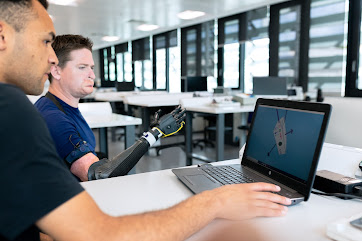The Rising Role of AI in Entertainment: Transforming the Way We Create and Consume
Artificial Intelligence (AI) is no longer confined to the realms of science fiction; it has become an integral part of our daily lives, permeating various industries, including entertainment. From movies and music to gaming and virtual experiences, AI is revolutionizing the way we create and consume entertainment content. In this blog post, we will explore the exciting developments and applications of AI in the world of entertainment, highlighting its impact on creativity, personalization, and the overall entertainment experience.
Enhancing Creativity in Content Creation
AI is empowering creators in the entertainment industry to push the boundaries of their imagination and create content that was once considered impossible. With AI-generated music, artists can experiment with unique sounds, melodies, and harmonies that resonate with audiences. Similarly, AI algorithms can analyze vast amounts of data and generate compelling scripts, enabling filmmakers and writers to explore innovative storylines and narratives. AI is not replacing human creativity; instead, it is acting as a powerful tool that amplifies and expands creative possibilities.
Personalized Recommendations and Discovery
One of the significant advantages of AI in entertainment is its ability to personalize recommendations and improve content discovery. Streaming platforms, music services, and video-on-demand providers leverage AI algorithms to analyze user preferences, viewing habits, and interactions to offer tailored recommendations. This enhances the user experience, helping audiences discover new movies, TV shows, songs, and games that align with their interests. AI-driven recommendation systems contribute to a more immersive and engaging entertainment journey, connecting users with content they are likely to enjoy.
Immersive Virtual and Augmented Reality Experiences
AI plays a pivotal role in creating immersive virtual and augmented reality (VR/AR) experiences, taking entertainment to new heights. AI algorithms can generate realistic environments, populate virtual worlds with intelligent characters, and simulate interactive scenarios that respond to user inputs. This opens up possibilities for engaging gaming experiences, virtual concerts, and virtual tourism. AI-driven technologies, such as natural language processing and computer vision, further enhance user interactions and immersion in these virtual realms.
Real-Time Data Analysis for Live Entertainment
In live entertainment, AI is transforming the way events are produced and consumed. AI-powered analytics platforms can process massive amounts of real-time data, providing event organizers and broadcasters with valuable insights into audience engagement, sentiment, and preferences. This data-driven approach enables adjustments and optimizations during live performances, sports events, and broadcasts, enhancing the overall experience for both the performers and the audience.
Preservation and Restoration of Entertainment Archives
AI is proving invaluable in the preservation and restoration of entertainment archives. Through machine learning and computer vision techniques, AI can enhance the quality of old recordings, films, and photographs, bringing them closer to modern standards. Additionally, AI algorithms can analyze and organize vast archives, making it easier for researchers, historians, and enthusiasts to access and explore cultural artefacts, music, and films from the past.
Conclusion
The integration of AI in entertainment is transforming the way we create, consume, and experience content. From enhancing creativity to personalizing recommendations, AI is revolutionizing various aspects of the entertainment industry. As technology continues to advance, we can expect even more groundbreaking applications of AI, leading to immersive virtual experiences, personalized storytelling, and innovative content creation. Embracing AI in entertainment opens up a world of possibilities, where human creativity is augmented by intelligent algorithms, resulting in a more engaging, diverse, and personalized entertainment landscape.





Comments
Post a Comment